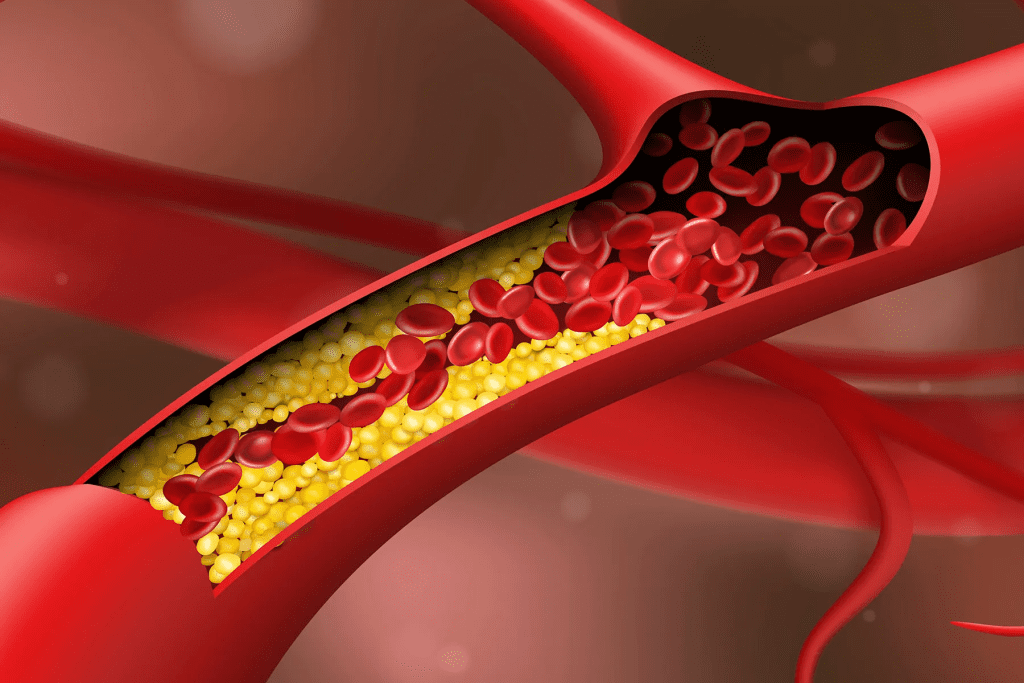When it comes to heart health, blocked arteries are silent threats that can build up over time—until they cause something serious like a heart attack or stroke. But what if your body has already been whispering warning signs? What if those odd aches, shortness of breath, or sudden fatigue aren’t just “getting older,” but red flags of clogged arteries?
Let’s dive into the symptoms you should never brush off, the science behind what’s happening inside your body, and how to take back control of your cardiovascular health—before it’s too late.
What Are Blocked Arteries and Why Are They Dangerous?

Your arteries are like superhighways that deliver oxygen-rich blood from your heart to every part of your body. When they’re healthy, blood flows freely. But over time, fatty deposits called plaque—a mix of cholesterol, calcium, and other substances—can build up along artery walls. This condition is known as atherosclerosis.
Once arteries become narrowed or blocked, the heart and brain may not get the blood supply they need. The result? A higher risk of heart attack, stroke, or even sudden cardiac death.
But here’s the silver lining: the body often sends warning signals before disaster strikes. You just have to know what to watch for.
1. Chest Discomfort or Pain (Angina)
Let’s start with the big one—chest pain. Not every chest pain means a heart attack, but ongoing pressure, squeezing, or a burning sensation in the center of your chest can be a sign your arteries are struggling.
This symptom, known as angina, often appears during physical activity or stress and goes away with rest. It happens because your heart muscle isn’t getting enough oxygen due to restricted blood flow. If you’ve been brushing off chest discomfort as heartburn or stress, it’s time to think twice.
Video : Warning! 8 Signs Your Heart, Arteries Are Clogged | Dr. Janine
2. Shortness of Breath, Even at Rest
Ever feel winded walking up a flight of stairs you used to handle with ease? Or worse—out of breath just sitting or lying down? This could be a sign that your heart isn’t pumping efficiently due to blocked arteries.
When your heart can’t deliver enough oxygenated blood, your lungs start to struggle to compensate, making you feel like you can’t catch your breath. This symptom is especially important in women, where heart issues often appear more subtly.
3. Pain in the Arms, Neck, Jaw, or Back
Not all heart-related pain happens in the chest. In fact, blocked arteries can trigger referred pain that radiates to your:
- Left or right arm
- Neck or throat
- Jaw
- Upper back or shoulders
This pain may come on gradually, or it may hit you suddenly like a wave of tension or discomfort. If it doesn’t go away with rest, or seems triggered by exertion, get checked out immediately.
4. Persistent Fatigue
Feeling exhausted all the time—even after a good night’s sleep? It might not be stress or age. Chronic fatigue can be a sign your heart isn’t getting enough oxygen to your body due to narrowed or blocked arteries.

You might notice it most when doing routine things like walking, carrying groceries, or even talking for long periods. Your body is literally working harder to compensate for poor circulation.
5. Cold Hands and Feet
Your hands and feet can be early messengers of poor circulation. If they often feel cold, numb, or tingly, it could mean that blocked arteries are limiting blood flow to your extremities.
This can also appear as skin discoloration or slow-healing wounds. It’s not just a winter thing—if your fingers are icy in July, your circulation may need attention.
6. Erectile Dysfunction (Yes, Seriously)
For men, ED can be one of the earliest signs of clogged arteries. Why? Because the arteries in the penis are smaller than those in the heart. If they’re becoming blocked, it’s often an early clue that similar blockages may be developing elsewhere in the body—especially the coronary arteries.
If you or your partner have noticed a decline in sexual performance, consider it a reason to check cardiovascular health, not just testosterone.
7. Dizziness or Lightheadedness

Blocked arteries can reduce blood flow to the brain, leading to episodes of dizziness, confusion, or fainting. If you find yourself feeling unsteady on your feet or seeing stars when standing up, your circulatory system could be struggling.
This symptom should never be ignored—especially if it’s combined with chest pain or shortness of breath.
What Causes Artery Blockage?
Arteries don’t get clogged overnight. It’s usually the result of years of unhealthy habits, including:
- A diet high in saturated fat and sugar
- Smoking
- Lack of exercise
- High blood pressure
- Uncontrolled diabetes
- Chronic stress
- Genetics and family history
The good news? You can reverse or slow down the process—but only if you catch it early.
What You Can Do Today
If you recognize these symptoms, don’t panic—but don’t wait either. Here’s how to start taking control now:
- See your doctor and ask for a heart checkup, including cholesterol tests and a stress test.
- Clean up your diet—focus on whole foods, fruits, veggies, lean proteins, and healthy fats.
- Move daily—even a 30-minute walk boosts circulation and reduces plaque buildup.
- Quit smoking and reduce alcohol.
- Manage stress with meditation, breathing exercises, or therapy.
- Take medications as prescribed if you have high blood pressure, diabetes, or cholesterol.
Video : 5 Signs of Heart Disease You Should Never Ignore
Your arteries are vital highways—keep them flowing.
Conclusion: Don’t Wait for a Wake-Up Call
Your body doesn’t whisper for no reason. Those subtle symptoms—tightness in your chest, that strange fatigue, the chilly fingers—they might be telling you something serious. Blocked arteries are a silent killer, but the good news is, you can catch the signs early and make changes that literally save your life.
So listen to your body. Trust your instincts. And take that first step toward better heart health today—because the best time to protect your heart is always now.


